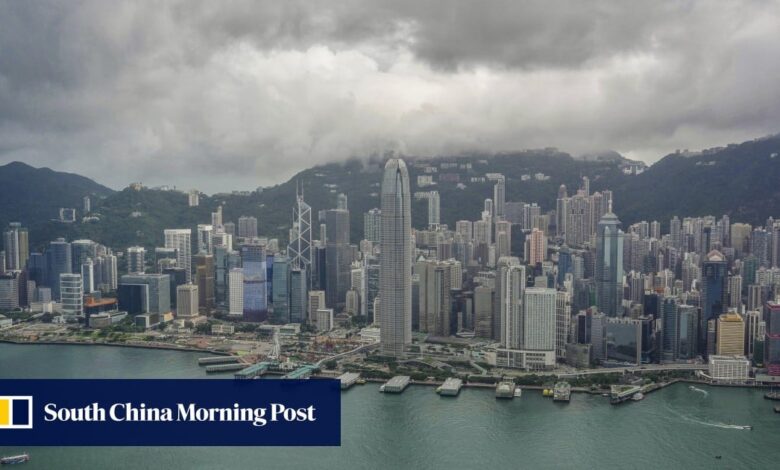Hong Kong loses pride of place in economic freedom league table to rival Singapore for first time in more than 50 years

[ad_1]
The Fraser Institute, a public policy research organisation headquartered in Vancouver, said on Tuesday that mainland China was responsible for the demotion.
The government went on the offensive after the institute said the city had been No 1 “since the first time comprehensive data became available in 1970” and warned Hong Kong’s ranking in its economic freedom listings could slip further.

“This is the first year Hong Kong has not ranked number one on the index since its inception, and the expectation is that its score will only fall further as the Chinese Communist Party continues to suppress freedom of all sorts,” Fred McMahon, the holder of a research chair in economic freedom and a resident fellow with the Fraser Institute, said.
The row broke out after the institute ranked the city No 2 in its Economic Freedom of the World report, with Singapore moving up from second in 2022 to top spot out of 165 jurisdictions around the globe.
The report examined regulation, openness to international trade, the size of government, the legal system and property rights of 165 jurisdictions around the world.
The information was used to draw up the league table, based the ability of people to make their own economic decisions in their countries or cities, with 2023’s rankings based on statistics from 2021.
The institute highlighted new regulatory barriers to entry, limits on the employment of foreign labour and rising business costs as reasons to lower scores for the city in its regulatory freedom component.
Hong Kong slams UK over claims city’s legal system at ‘critical juncture’
Hong Kong slams UK over claims city’s legal system at ‘critical juncture’
The survey also accused the city of allowing “increased military interference” in its rule of law and diminished confidence in its courts and judicial system, which had caused a decline in its legal system and erosion of property rights.
But a spokesman for the Hong Kong government dismissed the think tank’s verdict on the city’s regulatory environment as “factually wrong” and that the city remained committed to its status as an international financial centre.
“We totally disagree with such unfounded claims and express our disappointment. There is no change to the labour policy in the HKSAR,” the spokesman said.
He added that the government had introduced a variety of schemes to make it easier for employers to recruit foreign labour.
The spokesman also mounted a defence of Hong Kong legal system and highlighted its international recognition and constitutional designs enshrined in the Basic Law.
“Equality before the law is a fundamental principle observed in Hong Kong. The allegation against the independence and impartiality of our judiciary is totally groundless and unsupported by objective evidence,” he insisted.
Hong Kong, Beijing slam 8 EU Parliament members for slandering national security law
Hong Kong, Beijing slam 8 EU Parliament members for slandering national security law
The spokesman also accused the institute’s report of bias against the city’s implementation of the Beijing-imposed national security law.
He said that national security had been a matter for the mainland authorities and the city’s government had upheld the principle of “one country, two systems”.
The 2020 national security law was designed to outlaw secession, subversion of state power, terrorism and foreign interference after anti-government protests in 2019 turned violent.
Switzerland ranked third in the table, followed by New Zealand, with the United States in fifth place.
Venezuela retained the bottom spot, the same spot it held last year.
[ad_2]
Source link





